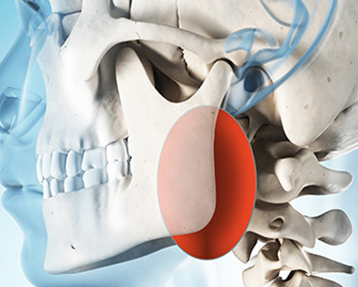“Head and neck cancer is the term given to cancers that start in the head and neck region.“
These are cancers that begin in any of these places:
- Mouth, also called the oral cavity
- Nasal cavity, the passage behind the nose
- Paranasal sinuses, which are the spaces around the nose, lined with cells that make mucus. They also provide a space that allows the voice to echo when you are talking or singing.
- Salivary glands, glands that make saliva
- Throat, known as the pharynx
- Voice box, called the larynx
Certain factors can make one person more likely to get Head and Neck Cancer than another person. These are called risk factors. However, just because you have one or more risk factors does not mean that you will definitely get head and neck cancer. In fact, you can have many risk factors and still not develop the disease. On the other hand, you can have no risk factors and still get head and neck cancer.
- Tobacco use: Smokers are more likely to get head and neck cancer than non-smokers
- Alcohol consumption: Some reports have found people who drink alcohol heavily (2 or more drinks a day) are at an increased risk. Those who smoke and drink heavily are at an even greater risk than people who do not.
- Gender: Head and neck cancer is 2 to 3 times more common in men than in women.
- Race: Some types of head and neck cancer are more common among African Americas than among white Americans.
- Sun Exposure: Spending a lot of time in the sun without protecting your skin and lips is linked to cancer in the lip area as well as skin cancer on the face, head, and neck.
- Certain infections: Some human papillomavirus (HPV) and Epstein-Barr virus (EBV) infections are strongly linked to head and neck cancer.
- Age:People older than age 40 are at increased risk for head and neck cancer.
- Poor mouth care: Not taking care of the mouth and teeth may increase the risk of head and neck cancer
- Poor diet: A diet that is low in some vitamins and minerals might increase the risk of head and neck cancer.
- Weakened immune system: People, whose immune system is suppressed, such as people who have had organ transplants, are at higher risk for some kinds of head and neck cancer.
- Workplace exposures: People exposed to wood dust, paint fumes, asbestos, and some other chemicals appear to be at increased risk for head and neck cancer.
A cancer diagnosis affects everyone differently, so there are no set rules about how you’re likely to feel, or how you should deal with your emotions. When you receive your cancer diagnosis, you may be given a number of options about your treatment. This can mean having to make some complex decisions at an already stressful time. If you’re finding these decisions difficult or confusing, or suffering from fear and anxiety, talk to your specialist.
Many people with head and neck cancer experience symptoms such as:
- A growth or sore in the mouth
- A lump in the neck
- A lump or sore inside the nose that will not heal
- A sore throat that does not go away
- Blocked sinuses that will not clear
- Chronic sinus infections
- Cough or hoarseness that does not go away
- Coughing up blood
- Difficulty swallowing, speaking, or breathing
- Frequent headache or pain around the nose, cheeks, jaws, or forehead
- Frequent nosebleeds or ones that don’t stop
- Muscle weakness
- Numbness in the face
- Pain in the ear
- Swelling of the eyes or under the chin or around the jaw
- Vomiting
These symptoms may be caused by cancer or by other problems. It is important to see a doctor about any symptoms like these so that the problem can be diagnosed and treated as early as possible.
Treatment depends on the type of cancer you have, where it is, and its stage. Common treatments for head and neck cancer include radiation, surgery, chemotherapy, and targeted therapy.
A dry mouth is a common side effect for patients undergoing radiotherapy. Radiotherapy affects the salivary glands and so you may not be able to make as much saliva as before. Your mouth and throat may become dry which will make eating and speaking more difficult. This dry mouth can last for many months following end of treatment.
Our Head and Neck Dietitians can improve the symptoms of dry mouth by providing assistance and advice concerning eating and drinking, recommending prescribed supplements and tube feeding. You may also find the use of false saliva helpful and this can be prescribed by your doctor.
Treatments for head and neck cancer, like surgery and radiotherapy, can interfere with the functioning movements of your mouth, tongue or throat. Difficulties with swallowing can make it harder to eat and drink properly. We work closely with you to help you return to eating and drinking.
A cancer diagnosis affects everyone differently, so there are no set rules about how you’re likely to feel, or how you should deal with your emotions. It is common to experience depression. Depression is more than simply feeling unhappy or fed up for a few days. We all go through spells of feeling down, but when you’re depressed you may feel persistently sad, lack motivation or have a sense of hopelessness which may last for weeks or months, rather than just a few days.
If you think you may be depressed, it’s important to speak to your doctor. Symptoms of depression include lasting feelings of sadness, losing interest in the things you used to enjoy, feeling constantly tired, having difficulty getting to sleep, and loss of appetite and feeling that life is not worth living.









